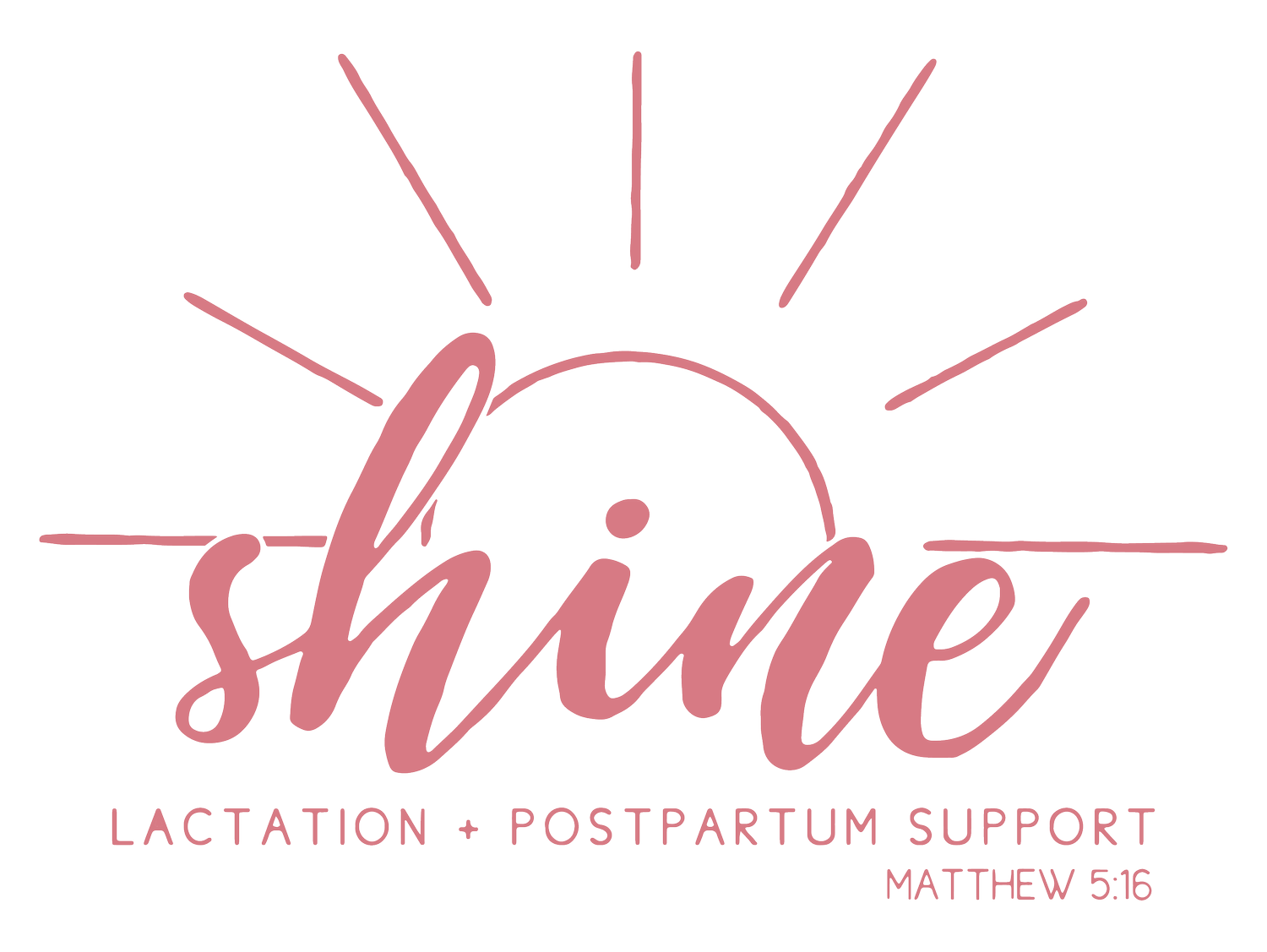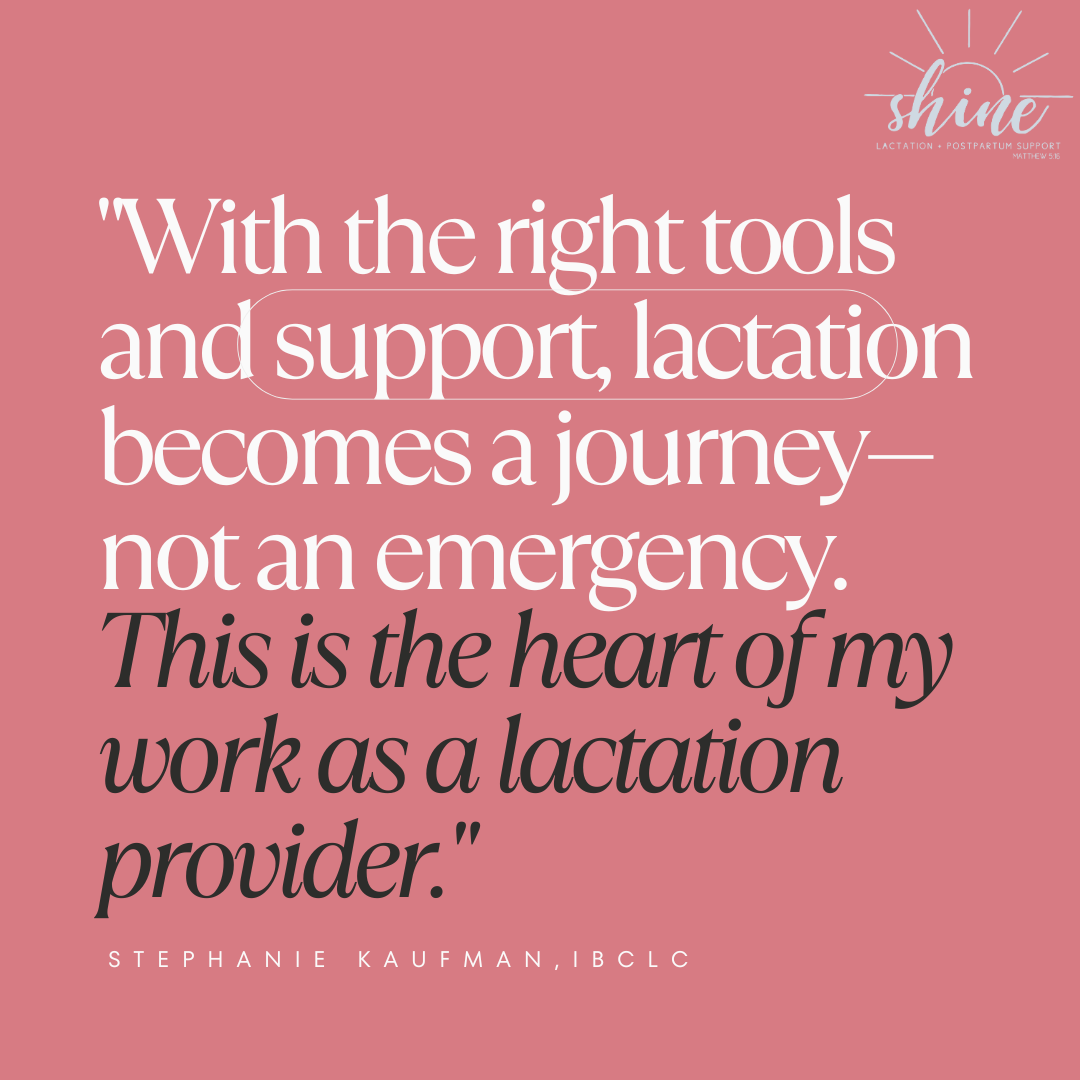No Lactation Emergencies!
Supporting Families on Their Breastfeeding Journey
After spending over 28 years in the hospital labor and delivery unit, I’ve had the privilege of caring for countless moms and babies. Nine years ago, I discovered a new passion: working with breastfeeding mothers and their newborns. This focus has brought me immense joy—more than I ever imagined. So much so that, a year and a half ago, I decided to expand my work to include private practice lactation support through Shine Lactation + Postpartum Support. It’s been one of the most fulfilling decisions of my career, allowing me to support families both in the hospital and in their homes.
This dual role—helping families establish breastfeeding in the hospital and supporting them once they’re home—has truly been the "icing on the cake" for me. It’s a privilege to witness the resilience and determination of parents navigating the early days of parenthood.
Empowering Families Through Challenges
Breastfeeding often comes with challenges, and my goal is to empower families to feel confident that they can feed their babies, even when hurdles arise. While every family’s journey is unique, certain patterns emerge during those early days. Here are some common scenarios we see:
Sleepy Newborns in the First 24 Hours: After an initial, wonderful feeding, many babies take what we call a "birthday nap." They become sleepy and can be difficult to wake for feedings, leaving parents unsure how to proceed.
Frustrated Feedings Around 24 Hours: A baby who latched beautifully at first may now seem fussy, rooting, crying, and struggling to latch. This can lead to frustration for everyone involved.
The “Night 2” Challenge: Many babies become more alert and want to feed frequently, sometimes seeming to nurse all night long. This can feel overwhelming for parents.
Circumcision Impact on Feeding: For baby boys, circumcision—often performed on the day of discharge—can leave them sleepy and uninterested in eating, just as parents feel like they’re getting the hang of breastfeeding.
First Night at Home: Families may experience very little sleeping and frequent feeding—or lots of sleeping and minimal feeding. Both scenarios can be stressful.
Milk Transition and Bilirubin Checks: As milk transitions, breasts may feel heavy or engorged. Meanwhile, families often face bilirubin level checks for jaundice and weight checks, which can reveal no weight gain or even weight loss, adding to their worries.
Day 5 Challenges: Just as the milk fully transitions, some babies struggle to latch due to engorgement, leaving parents wondering what to do next.
These scenarios are common, even with healthy, full-term newborns. Additional challenges can arise with babies born a few weeks early or to mothers with gestational diabetes.
Preparation Is Key
One of the best ways to support families is by helping them anticipate and prepare for these potential challenges. Prenatal lactation consultations and childbirth preparation classes are invaluable tools for setting realistic expectations. Parents who learn the basics of hand expression, spoon feeding, and other feeding techniques gain confidence in their ability to care for and nourish their babies.
In the hospital, it’s important to ask for help and take advantage of the lactation support available. As families prepare for discharge, having resources like lactation consultant contacts and clear educational materials can significantly reduce the stress of bringing a new baby home.
Preventing "Lactation Emergencies"
My ultimate goal is to help families avoid what I like to call "lactation emergencies." By equipping parents with knowledge, practical skills, and access to professional support, we can ensure they feel empowered and confident in their breastfeeding journey. Challenges are a natural part of the process, but with the right preparation and support, families can overcome them and thrive.
It’s an honor to walk alongside families during such a transformative time in their lives. Whether in the hospital or through Shine Lactation + Postpartum Support, I’m here to provide encouragement, education, and solutions tailored to each family’s needs. Together, we can make breastfeeding a positive and rewarding experience for both parents and babies.


